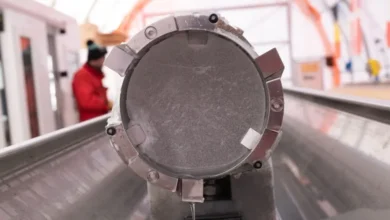Can an aspirin a day keep cancer at bay?

For decades, aspirin has been known as a go-to painkiller. New research reveals how it may also help fight cancer.
While previous research hinted at a link between aspirin use and improved cancer survival, a study published in Nature last week explains why. However, experts caution that aspirin is not a cure – and it carries risks like increased potential for internal bleeding.What have studies found about aspirin use and cancer?
Recent studies have revealed how aspirin, a widely used painkiller, may help prevent the spread of cancer, although it is unclear whether it would work the same for all types of the disease.
Researchers have been exploring this link for decades. The first clinical study, published in 1988, showed that regular aspirin use significantly lowered the risk of colorectal cancer, though the underlying reason remained unclear.
Now, a new study from the University of Cambridge offers more insight. It found the mechanism by which aspirin may help prevent cancer from spreading, a process known as metastasis.Metastasis is responsible for the majority of cancer-related deaths, as cancer cells break away from the original tumour and try to take root elsewhere across the body.
As these drifting cancer cells go rogue, aspirin may enhance the body’s natural ability to fight back, keeping the cancer cells from taking hold of more organs.How can aspirin keep cancer from spreading?
The key to aspirin’s effect on cancer lies in the body’s immune system, a complex network of cells and proteins that defends against infections, diseases and harmful germs.
When cancer cells break away from a tumour, they enter the bloodstream, where the immune system – specifically types of white blood cells known as T-cells – normally hunts them down and destroys them. However, platelets – tiny cell fragments in the blood that help with clotting – can interfere with this process.
Cancer takes advantage of platelets by triggering a response similar to an injury. When platelets detect the free-floating cancer cells, they rush to coat them, much like they would cover a wound to stop bleeding.
This creates a protective shield, making it harder for the immune system to recognise and attack the cancer cells. Additionally, platelets release signals that suppress T-cells, preventing them from doing their job.
Aspirin disrupts cancer’s attempts at trickery by reducing the production of a molecule that platelets use to suppress immune activity. With the platelets weakened, T-cells regain their ability to recognise and destroy cancer cells before they have a chance to form new tumours.










